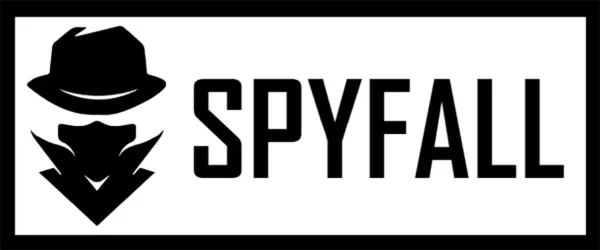Spyfall is a social deduction party game created by Alexandr Ushan and published by Hobby World. The game was originally published as a card game, but has since expanded to an online platform as a browser game. Last night, I was able to play Spyfall with a party of 7 (including me). We used an online platform and communicated over discord for three rounds total. While the intended audience of Spyfall are people above the age of 12, it is possible to play with a younger audience. Spyfall is a good game for any player has a grasp of locations.
The mechanics of Spyfall are straightforward and similar to traditional mafia: players are assigned roles: either regular participants or the elusive spy. Each round, all players receive a location except the spy, who remains unaware of the chosen venue. The game unfolds as players ask and answer questions about the location, aiming to gather clues while keeping their true identities hidden while being mindful of the time limit. Players can make accusations about potential spys and cast votes accordingly. There is a zero-sum point system based on successful indictments, accurate location guesses from the spy, and the spy’s ability to remain undetected. These mechanics allows Spyfall to successfully emphasize social deduction by creating an atmosphere of suspicion and multi-layered deduction through the strategic disclosure of information and concealment of critical details.

At the heart of Spyfall lies the strategic interplay of questions and answers. Players must carefully craft their questions to extract valuable information while simultaneously guarding against accidentally revealing too much. Every question then becomes a calculated risk, as players weigh the potential benefits of gaining insight against the possibility of exposing themselves. Similarly, each answer must be crafted with precision, offering just enough detail to maintain credibility without revealing the location or one’s identity. This strategic dance of interrogation and evasion builds tension and uncertainty, which drives suspicion. For example, in our playthrough above, exposing the occupation “chef” made it easy for the spy to guess, whereas, “can be a family business” was less detrimental. This dynamic becomes even more apparent by allowing players to intentionally select who to interrogate. The total amount of “spotlight” or time a player receives further adds pressure to the game. If the spotlight lingers on a suspected-innocent player for too long, precious time diminishes for the group to identify the true spy. Moreover, this extended focus detracts from opportunities for other players to demonstrate their innocence, thereby heightening the risk of misidentification and amplifying the stakes of every question and answer exchanged.
Beyond the exchange of words, Spyfall challenges its players to read between the lines and decipher hidden meanings. Every nuance of behavior becomes a potential clue, from subtle shifts in tones to fleeting expressions of doubt. Each player brings their unique approach and personality to the game as some adopt a cautious demeanor, offering short responses while others may choose to expand on their answers. Players must hone their observational skills and leverage their knowledge of each other’s personalities and behaviors to inform their suspicions. A sudden change in play-styles or demeanor from previous rounds could also be an indicator for suspicion. For example, I chose to vote out Emily over Alex at the end of game because Emily was not as active in the conversations as she was in past games. In this way, Spyfall breaks from traditional boundaries of a game board, transforming ordinary social interactions into a battleground.
In conversation with the games aesthetics, the secret word serves as a unifying element among the players offering a sense of fellowship and collaboration in the game. By revealing the secret word in a unilateral manner, Spyfall creates a sense of camaraderie, almost like an “inside joke” of some sorts. For example, in one of our games, the location was “ski lift” and the answer “CLOTHES” to “What would you wear?” made us all laugh in agreement. The secret word creates a connection and understanding between the large subset of players that would be missed by an outside party or the spy otherwise. Additionally, the mutual protection of the secret word forces players to be more mindful about the information they impose onto their peers. As for spies, the appeal of Spyfall is its challenge. Spies attempt to overcome the obstacle by deciphering the secret word and remaining undetected. It encourages you to try to outwit your peers through vagueness and ambiguity.



